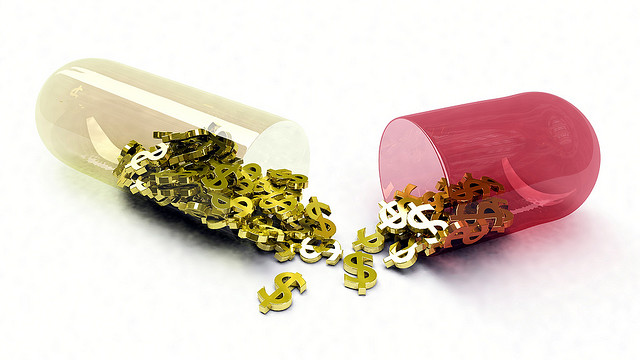Trans-Pacific Partnership: ’50/50’ chance of trade deal today as negotiators lock horns over medical patent protection

ABC | October 2015
Trans-Pacific Partnership: ’50/50’ chance of trade deal today as negotiators lock horns over medical patent protection
James Glenday
There is a 50 per cent chance the Trans-Pacific Partnership trade deal will be agreed to in the United States today, according to Trade Minister Andrew Robb.
In a statement, Mr Robb said negotiations over the 12-country TPP, which would cover 40 per cent of the global economy, had continued throughout the night in the US city of Atlanta.
But intellectual property protections for new biologic drugs remain a big, unresolved sticking point between the US and Australia.
The United States wants data exclusivity protections extended to eight years, but Mr Robb will not move further than five years.
"Australia’s current arrangements ... are completely adequate and any proposed changes are non-negotiable, this is a red line issue for us," he said.
It is claimed any extension of the data provisions could hit the health budget, but other countries at the negotiating table have expressed concerns at the delay.
Japan’s economic minister Akira Amari warned it could be the "last chance" of getting a deal.
The ABC understands progress has been made in industries like beef, horticulture, wine, seafood, grains and dairy but negotiations over sugar remain unresolved.
When asked about the impasse, the Minister for International Development and the Pacific, Steve Ciobo said: "We are not going to jeopardise Australia’s national interest. We are not going to put Australia’s national interest in terms of access to affordable medicines at risk".
"So, that was our starting point going into negotiations."
However, he said, the TPP would be "great" for Australians in the long-run.
"It’s giving Australia great market access to 40 per cent of global GDP."
The US allows pharmaceutical companies an exclusive period of 12 years to use clinical data behind the approval for a new biological drug.
The Obama administration had previously proposed lowering the threshold to seven years, but has pushed a proposal for an eight-year minimum in the TPP talks.
Australia — along with others such as New Zealand and Chile — has been unwilling to offer more than five years protection for the medicines, because longer terms would increase the cost of state-subsidised medical programs.
Drug companies argue a longer period is needed to create an incentive for developing treatments for diseases such as cancer and arthritis
The Obama administration has been the prime driver behind the TPP, to create a foundation for "21st century trade rules," setting standards on trade, investment, data flows and intellectual property that eventually non-TPP members — particularly China — will have to accept.





